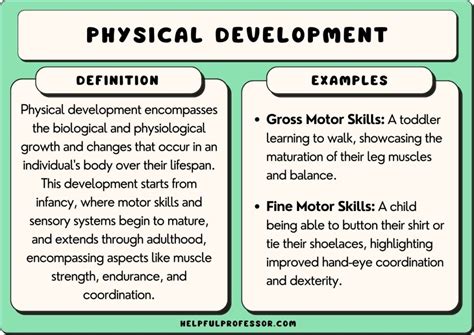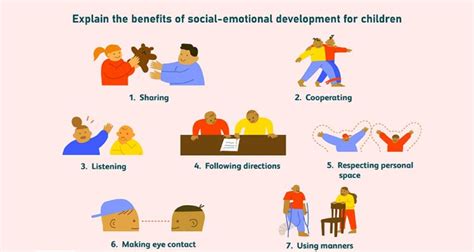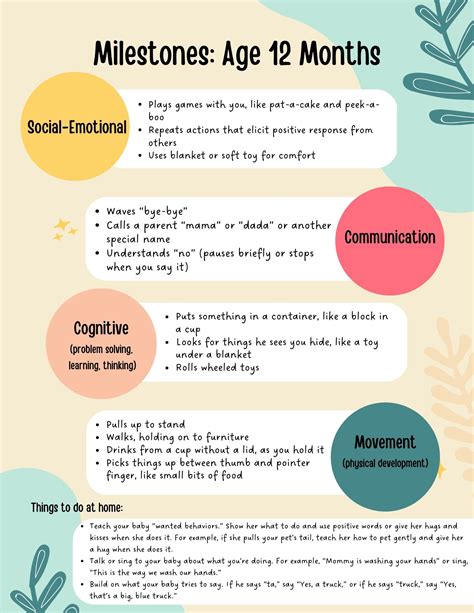Intro
Discover key 5 year old developmental milestones, including social, emotional, and cognitive growth, with related language skills, fine motor, and physical development, to track your childs progress.
As children grow and develop, they reach various milestones that mark their progress. For 5-year-olds, this is an exciting time filled with exploration, learning, and refinement of their skills. Understanding these developmental milestones is crucial for parents and caregivers to support their child's growth effectively. At 5 years old, children are transitioning from preschool to more formal educational settings, and their abilities are becoming more sophisticated. This period is characterized by significant advancements in physical, cognitive, emotional, and social development.
The journey through childhood is filled with wonder and discovery, and the age of 5 is particularly remarkable. Children at this stage are beginning to assert their independence, express their creativity, and develop meaningful relationships with their peers and family members. Observing and supporting these developments not only enhances the child's quality of life but also lays the foundation for future successes. Whether it's mastering new physical skills, demonstrating an understanding of complex concepts, or navigating social interactions, each milestone achieved signifies growth and readiness for the challenges ahead.
As we delve into the specifics of 5-year-old developmental milestones, it becomes clear that this age is a time of great diversity and potential. Children may develop at slightly different paces, and what is considered "normal" can vary widely. However, there are certain benchmarks that most children are expected to reach by the age of 5, and being aware of these can help in identifying areas where additional support might be beneficial. From improved coordination and balance to enhanced problem-solving skills and emotional intelligence, the developments at this stage are multifaceted and interconnected.
Physical Development

Some key physical milestones for 5-year-olds include:
- Riding a tricycle or a balance bike with confidence
- Showing improved balance and being able to stand on one foot for a few seconds
- Demonstrating hand dominance (either left or right-handed)
- Being able to dress and undress themselves with minimal assistance
- Using utensils correctly during meals
Cognitive Development

Key aspects of cognitive development in 5-year-olds include:
- Demonstrating an understanding of numbers and basic math concepts
- Recognizing and identifying basic shapes and colors
- Showing an interest in reading and writing, possibly attempting to write their name
- Engaging in pretend play that reflects their understanding of the world
- Beginning to understand and respect rules in games and other activities
Language and Communication
Language and communication skills are vital components of cognitive development. Five-year-olds are continually expanding their vocabulary and can engage in simple conversations. They can express their feelings and needs using complete sentences and are beginning to understand the nuances of language, such as tone and context. This development is essential for social interaction, academic success, and emotional intelligence.Some notable language and communication milestones include:
- Using language to communicate needs and wants
- Engaging in conversations that involve giving and taking turns
- Identifying and naming basic sight words
- Demonstrating an understanding of basic story structure
- Using descriptive language to talk about pictures or events
Emotional and Social Development

Key milestones in emotional and social development include:
- Playing cooperatively with other children
- Showing empathy towards others, such as comforting a crying friend
- Beginning to develop independence, wanting to do things on their own
- Expressing a range of emotions and beginning to understand how others feel
- Demonstrating pride in their accomplishments and showing a desire for praise
Play and Learning
Play is a fundamental aspect of childhood development, serving as a platform for children to explore, learn, and develop new skills. For 5-year-olds, play is not just a form of entertainment but a critical component of their educational and personal growth. Through play, children can experiment with different roles, practice social skills, and develop their problem-solving abilities.Some ways play contributes to learning and development include:
- Enhancing creativity and imagination through pretend play
- Developing social skills, such as cooperation and communication
- Improving physical skills, such as balance, coordination, and fine motor abilities
- Fostering emotional intelligence, including empathy and self-awareness
- Encouraging cognitive development, such as problem-solving and critical thinking
Supporting Developmental Milestones

Ways to support developmental milestones include:
- Engaging in regular play that promotes physical, cognitive, and emotional development
- Providing opportunities for social interaction to foster friendships and social skills
- Encouraging independence while offering support and guidance when needed
- Reading together to promote language and cognitive skills
- Praising efforts and accomplishments to build self-esteem and motivation
Addressing Concerns
If parents or caregivers have concerns about a child's development, it's essential to address these concerns promptly. This might involve consulting with a pediatrician, a child development specialist, or an early childhood educator. Early intervention can significantly impact a child's ability to reach their full potential and address any developmental delays.Steps to address concerns include:
- Discussing observations with a healthcare provider
- Participating in developmental screenings or assessments
- Implementing strategies recommended by professionals to support development
- Maintaining open communication with teachers and caregivers to ensure a consistent approach
- Focusing on the child's strengths while addressing areas of concern
What are the most critical developmental milestones for a 5-year-old?
+The most critical milestones include improvements in physical skills like running and climbing, cognitive developments such as problem-solving and understanding numbers, emotional and social developments like expressing empathy and forming friendships, and language developments including engaging in conversations and identifying sight words.
How can I support my child's cognitive development at 5 years old?
+Supporting cognitive development can be achieved by engaging in activities that promote learning, such as reading together, playing puzzle games, and encouraging pretend play. Providing a stimulating environment that fosters curiosity and exploration is also beneficial.
What should I do if I'm concerned about my child's developmental progress?
+If you're concerned, it's best to consult with a pediatrician or a child development specialist. They can provide a thorough assessment and offer guidance on how to support your child's development. Early intervention is key to addressing any potential issues.
As we explore the complexities and wonders of child development, it becomes apparent that every milestone, no matter how small, contributes to the larger tapestry of a child's life. By understanding, supporting, and celebrating these developments, we can help children navigate the challenges of growing up and empower them to reach their full potential. Whether you're a parent, caregiver, or educator, being part of this journey is not only a privilege but a responsibility that requires dedication, patience, and love. As you continue on this path, remember that every child is unique, and their developmental journey is filled with opportunities for growth, learning, and joy.
